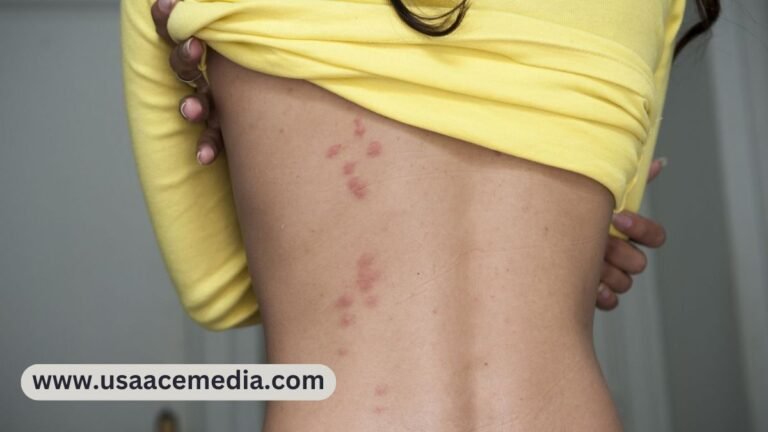In this article, we will dive into the Itchy Bumps on Skin Like Mosquito Bites but Aren’t. Find what are the disease and its causes, and will provide the treatment for them. Spots have a bumpy texture. They are the size of a mosquito bite. They are often pestering and annoying. There are many reasons for inflammation occurring. These reasons may be pollen allergy, infection, or occurring diseases. Studying the causes of itchy skin bumps can help people find the right treatment. It can also help them find the help they need.
Itchy bumps that look like mosquito bites but aren’t: What are they?
Many people experiences this symptom at once or many times. Itchy rashes can appear due to allergies, infections, insect bites and sometimes unknown factors. However, the American College of Allergy, Asthma, and Immunology does not recommend scratching if someone’s skin itches.
Additional common self-care practices for itchy skin include:
- bathing frequently with lukewarm water
- using mild, hypoallergenic soap
- limiting sun exposure
- applying cold compress
- Avoid tight clothing in areas where itchy pimples appear
Understanding the different conditions that cause skin itching can help people get appropriate treatment. Depending on the cause, treatment may range from avoiding certain foods to taking prescription medications. Keep reading to learn more about some common causes of itchy pimples that resemble mosquito bites and how to treat them.
Causes and Disease of Itchy Bumps on Skin Like Mosquito Bites
Here we have given some of the causes and diseases that occur on itchy bumps on skin like mosquito bites.
Hives (Urticaria)
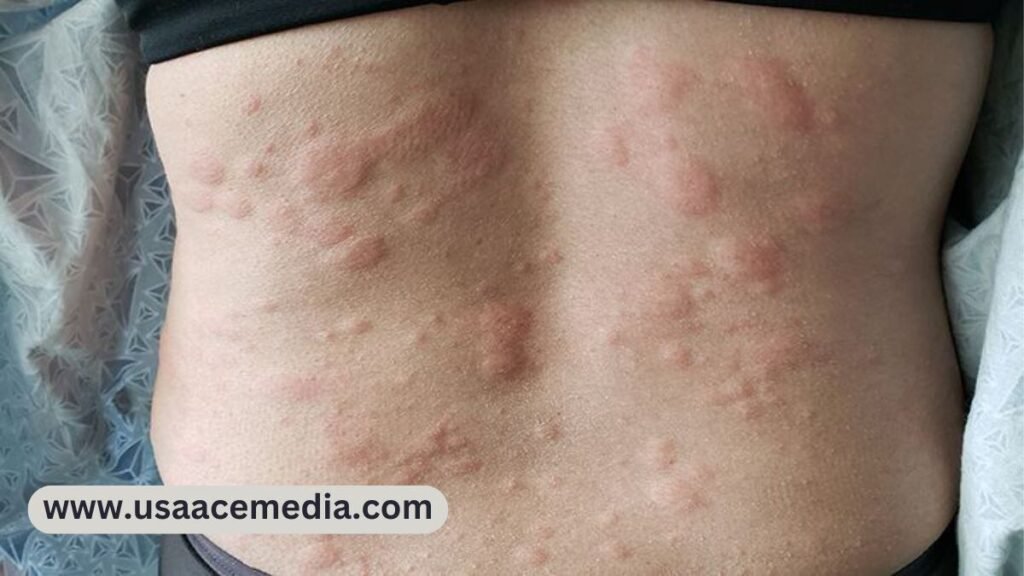
Itchy bumps that look like mosquito bites are a common reason. The bumps are often a sign of a condition called hives or urticaria. The skin swells up, becomes red, and gets itchy. This happens in minutes. It’s called hives. They may appear and disappear. They come from allergic reactions. Reactions can be to foods, medicine, insect bites, or the environment. The hives are red-purple, or what we call skin-colored. They usually turn pink when pressure is applied.
The normal therapy for hives is to avoid triggers. It also involves using over-the-counter antihistamines. It also involves using anti-itch drugs. In some hard cases, doctors can use medicine to treat the symptoms. They can prescribe it.
Bed Bugs
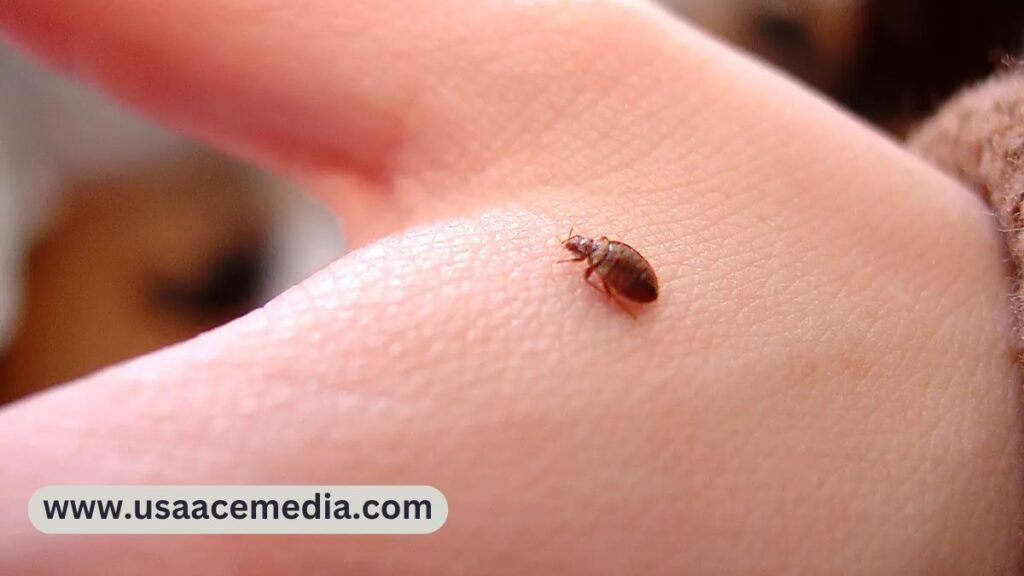
You may get itchy bumps from bed bug bites. They are the second most likely cause. Bed bugs are insects that feed on blood with their size ranging from 1 to 5 mm. They can easily deposit itchy red warts on your body. Webs of bites from bed bugs usually manifest after a period of up to two weeks. Moreover, these bites may appear in a straight line or in a dispersed pattern.
Managing bed bug bites includes controlling scratching. It also involves using antiseptic ointments. And taking antihistamines to reduce itching. In the worst cases, you may take basic medicines to cure the wound.
Contact Dermatitis
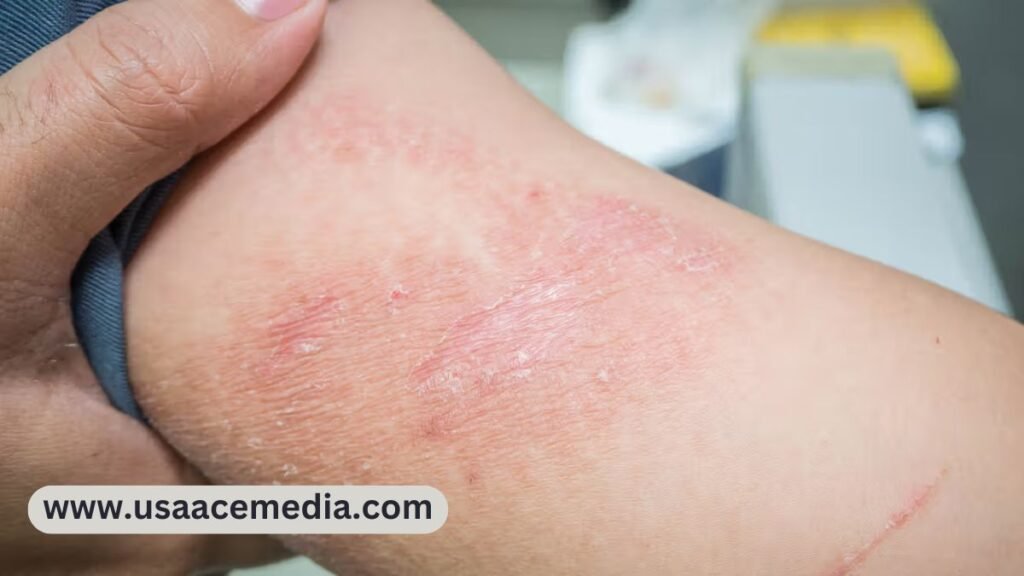
Contact dermatitis is caused when the skin touches a foreign substance. These include latex, metal alloys, or household products. These substances contain an antigen, which triggers an allergic reaction. Contact dermatitis threatens to cause itchy, inflamed skin and blisters. Contact dermatitis also contains sensitization.
Treating contact dermatitis involves avoiding the known allergen. You should wash off the painful rash with cold compresses. Use calamine lotion and take soothing baths.
Scabies
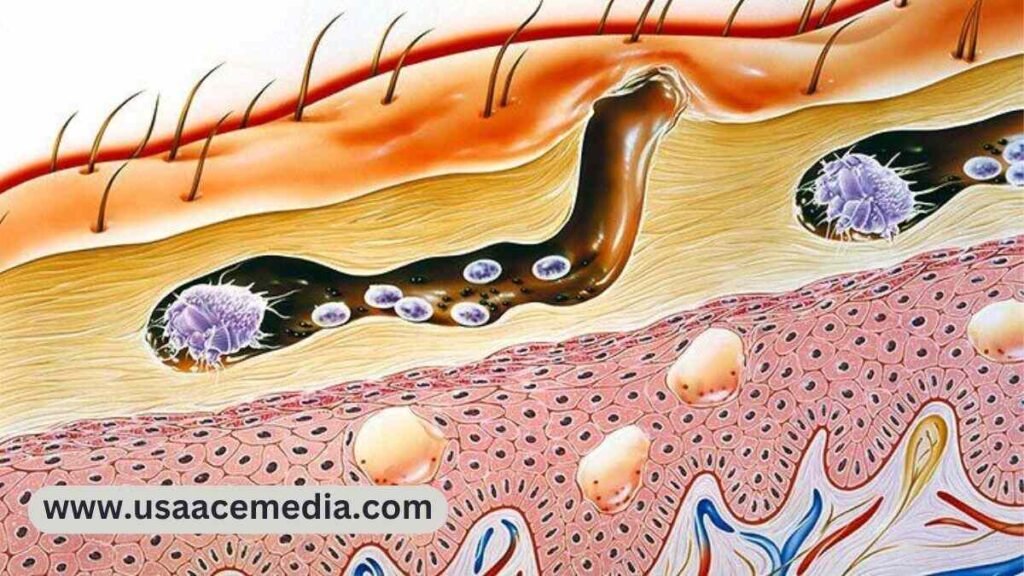
The human itch mite infects the skin, causing the condition known as scabies. Scabies is a disease marked by the appearance of itchy bumps on the skin that look like mosquito bites. It also manifests as grooved, crooked lines due to mites burrowing into the skin.
Scabies treatment uses lotions. They make to remove the mites and their eggs. It also shows that washing and drying all clothes, bedding, and other items is crucial. This is to rule out the return of beetles.
Eczema (Atopic Dermatitis)
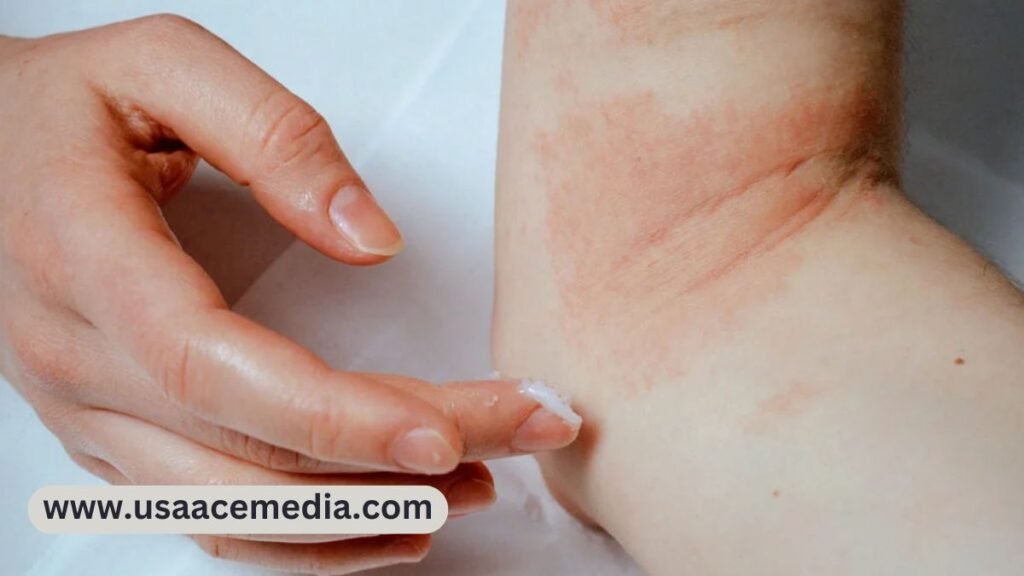
Eczema, also called Atopic dermatitis, is a common skin condition. It causes scratching, red skin, inflammation, and bumps. Eczema can be from the environment, contact with laundry soap, or sweating. It can affect any body part.
The treatment for eczema consists of moisturizers. Patients must avoid triggers. In severe cases, they use steroids and biologics.
Self-Care Practices for Itchy Bumps
There can be different diseases and causes of these itchy bumps. It can be dangerous if not treated well. Thus, here are some of the self-care practices given below that you should implement to not get affected by these.
- Use cold compresses
- Avoid wearing tight clothes
- Contact a dermatologist or your trusted skin doctor.
- Use anti-itch cream with the consultation of a specialist.
Conclusion
In short, many things can cause Itchy Bumps on the Skin Like Mosquito Bites but Aren’t. These include hives, bed bug bites, allergies, scabies, and eczema. The cause of these situations may be allergic reactions, bacteria, or environmental triggers. The treatment of psoriasis might vary from one particular person to another. , it involves self-care methods. For example, not scratching is one way. You can also use non-prescription drugs. And, for severe cases, take prescription drugs. A healthcare expert must spot the right illness through diagnosis. This leads to proper treatment. Learning who causes these small prickly bumps can help those suffering from them. It will help them get the needed treatment until they find relief.
FAQs About itchy bumps on skin like mosquito bites but aren’t
Ans. Many rashes are itchy and like mosquito bites. The causes range from allergies and infections. They also include long-term conditions like hives or eczema.
Ans. Treatment for bothersome knocks on the skin relies upon the fundamental reason. For hives, over-the-counter allergy meds or against-tingle moisturizers can help. Bloodsucker nibbles can be treated with germ-free balms and allergy medicines.
Ans. No, scratching irritated knocks on your skin isn’t suggested. Scratching can prompt more disturbance. It can also cause aggravation and the risk of contamination. It is ideal to abstain from scratching and look for suitable treatment to ease tingling.
Ans. Avoid bothersome skin knocks by staying away from known triggers. These include allergens and bug bites. You can also prevent skin irritation by using hypoallergenic cleansers. Also, avoid tight clothing and limit sun exposure.
Ans. If you have relentless or serious side effects, you must talk to a medical professional. They can give an exact conclusion and suggest proper treatment for your condition.
